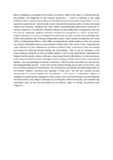Please use this identifier to cite or link to this item:
https://cris.library.msu.ac.zw//handle/11408/1376| Title: | Zimbabwe’s illusive national healing and reconciliation processes: from independence to the inclusive government 1980 – 2009 | Authors: | Mashingaidze, Terence M. | Keywords: | Conflict education, Government, Government systems, History, National history, Political violence history, Truth and reconciliation | Issue Date: | 2010 | Publisher: | African Centre for the Constructive Resolution of Disputes (ACCORD) | Series/Report no.: | Conflict Trends;No. 1: 19 - 27 | Abstract: | Many Zimbabweans considered the formation, in February 2008, of the Organ on National Healing, reconciliation and Integration by the Inclusive Government – formed by elements of the ruling Zimbabwe African National union (ZANu) and the Movement for Democratic Change (MDC) – to be a watershed opportunity for stemming the nation’s historically entrenched culture of state-sanctioned violence and impunity. Zimbabwe had never before comprehensively attempted to prosecute or compel perpetrators of politically motivated violence to acknowledge their transgressions, because the national leadership regularly exploited constitutional prerogatives to pardon perpetrators. Political expedience has always outweighed the imperatives of victim-sensitive national healing after all the major political crises of the post-independence years. These included the liberation war of the 1970s, the Gukurahundi inferno of the 1980s, recurring election-related violence in the post-colonial era, the land reclamation exercise, and anti-MDC violence after 2000. In this article, I argue that the major deficiency in the contemporary conciliatory political milieu is the lack of clear and binding instruments for achieving national healing and reconciliation. There is also no symmetry in the power relations among the constituent political players in the Inclusive Government. Individuals and interests that fomented violence in the past remain powerful and still arbitrarily control some levers of the state, and this forecloses meaningful national healing. Another shortcoming is that national healing is also conceptualised in selective racial terms, with the white community not factored into the ongoing healing exercise. In short, the current national healing process does not promise a new future without impunity for Zimbabweans. The ensuing narrative explores the intersecting politics of post-colonial violence, retribution and impunity in three parts. The first part analyses the key determinants for national healing and reconciliation. In the second, I contextualise violence in Zimbabwe by exploring the inadequacies of the country’s post-colonial attempts at national healing. The third section is my critique of attempts at stemming the culture of impunity, and of establishing sustainable peace by the new government and its National Organ on Healing, reconciliation and Integration. | URI: | http://hdl.handle.net/11408/1376 |
| Appears in Collections: | Research Papers |
Files in This Item:
| File | Description | Size | Format | |
|---|---|---|---|---|
| Zimbabwe's illusive national healing.pdf | Abstract | 205.32 kB | Adobe PDF |  View/Open |
Page view(s)
168
checked on Jan 25, 2026
Download(s)
42
checked on Jan 25, 2026
Google ScholarTM
Check
Items in MSUIR are protected by copyright, with all rights reserved, unless otherwise indicated.



